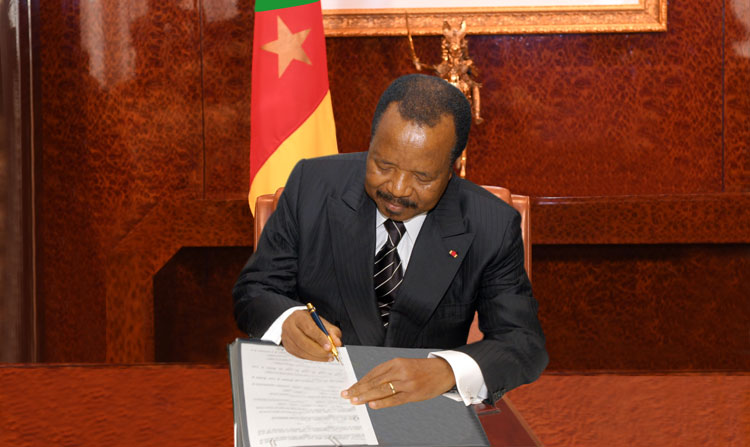By Kesah Princely, In Buea
A recent tax levied on mobile money operations in Cameroon has negatively affected the socio-economic inclusion of Persons with Disabilities (PWDs) who are now clamouring for exemption.
Persons with Disabilities in Cameroon say at a time when they are militating for social justice in the domain of employment, levying a mobile money tax on them only exacerbates an already bad situation.
Cameroonians woke up on January 1, 2022, with news that 0.2% of all their mobile money transactions will be paid as a direct tax.
The information sounded like a joke to many a person until a few hours later when people of various walks of life began airing their frustration.
The tax which is included in the country’s 2022 Finance Law charges 0.2% on all mobile money transactions; that is, cashin and cashout.
Barely 21 days after the said law went operational, some persons with disabilities have labelled it as social injustice, stressing that the tax is a barrier to inclusion.
Bea Shadrach, President of the Meme Association of Persons with Disabilities (MEPEWIDA), considers the tax as an obstacle to persons with disabilities who barely struggle to put a meal on their tables.
He revealed to TWIF news that, so long as PWDs continue to bear the brunts of the tax, their situation would hardly be ameliorated.
Why Is The 0.2% Tax Burdensome For PWDs?
Persons with Disabilities in Cameroon are considered one of the neglected categories of people as far as recruitment into the public service is concerned.
Despite having well-educated ones among them, the government has done very little to ensure graduates are employed to encourage the few who have lost hope in academics.
Upon wrapping up with university programs, many either embark on petit trading or craft work as they struggle to better their lives and those of their families.
The current mobile money tax therefore affects especially women with disabilities who push hard to survive in a society which associates disability to myth and witchcraft.
The situation is worst for persons with PWDs in Anglophone Cameroon who are not only battling to survive the mobile money tax, but as well, a ragging separatist armed conflict which is nearing its sixth year.
“Most of us are now considered as a social burden because we have lost our sources of livelihood due to this conflict, and now a mobile money tax,” revealed a lady with mobility impairment in Bamenda, capital of the restive Northwest Region.
Mbuh Lucy, a leader of PWDs in Buea believes that the only way out is for PWDs to be exempted from the tax on mobile money operations.
“Not exempting PWDs from this tax is social injustice because most of us, educated or uneducated, remain unemployed in our own country.
“The barriers to inclusion are well-known by the government, but I wonder if PWDs were ever thought of when the finance bill was being deliberated upon and finally promulgated into law,” she intimated.
The general out cry of Cameroonians with disabilities is to be exonerated from the tax which they consider as social injustice.
For the exemption to be meaningful, leaders of PWDs are calling on the government to create an avenue for PWDs to identify themselves with MTN and Orange respectively, so that they could be excluded from the tax.
At a time when the government of Cameroon is accelerating the socio-economic and political inclusion of PWDs, Human Right advocates view exemption as a sine qua non to social justice.
For information, advertising or to support TWIF NEWS, Reach Out to us through: 237674667038.






















